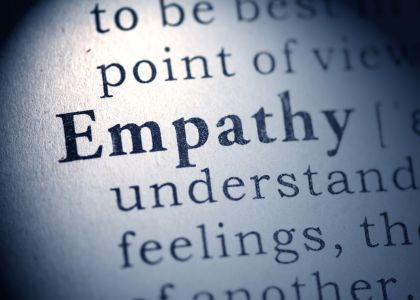I’ve been chatting with my EQ emotional intelligence provider, EBW Global – Business Emotional Intelligence Assessments, about Dark Empathy – empathy used as a weapon by leaders or colleagues with Dark Triad characteristics. How do we coach leaders with slight (or more) tendencies? In our conversation I suggested:With Empathy, like with almost everything, ‘more’ does not = ‘better’, necessarily. Empathy, like any other tool or human ability, has great potential to be used for much good, but can also be used for ill. And for coaches/therapists, their own excess emotional empathy can lead to burnout. I sometimes take a psychodynamic approach when Supervising coaching practitioners who are coaching people with some of these tendencies. For coaching practitioners I’d venture briefly:1. First, recognise you have your own Darkness (Shadow sides). No-one is without Dark ideas, motivations, and behaviours at times. 2. Empathise! If we believe in the power of Empathy, and if we are to help someone with Dark Empathy, then it’s necessary to find the Dark/Shadow in ourselves, and work on ourselves first. Otherwise, how can we empathise with them, or the process we will be asking them to volunteer to? 3. Self-Protect: Be careful to maintain your boundaries in the coaching relationship – if you are high on emotional empathy (many practitioners natually are), it’s possible to get sucked in. Appreciate the positives/advantages but do not Fawn (Fight, Flight, Fawn, Freeze) over them. It’s easy to do. Stockholm Syndrome is the classic example. 4. Ensure you have a good, objective, caring Supervisor, prepare well together, and get Supervision support between sessions to check and repair your emotional and ethical ‘cleanliness’ that sticks to you from the sessions. It’s amazing what can stick to us coaches, without us realising it.5. Transactional improvements can be made by helping them see the negative impacts of their behaviours in both short- AND long-terms, and work towards win-win strategies and behaviours and positive impacts they understand.6. Transformational improvements are more difficult in some cases – what you may see as ethical, the client may see as unfair self-sacrifice, or even self-harm – the ethics of sacrifice are not there. So don’t hang your hat on ‘making a Saint’, but sometimes you can see an ethical/spiritual shift, where the client may see ‘in-principle’ relational v task benefits. You may never know the inner difference you have made. Be OK with that.7. Some traits associated with psychopathy are positive. 8. In Team Coaching, the likelihood of one or more of the team using Dark Empathy increases factorially. Be vigilant and prepared.It’s a coaching challenge…
